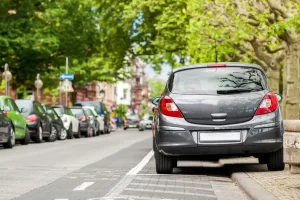Is Maine a tort state?
Is Maine a tort state?
Maine is an at-fault (or “tort”) state. That means the driver who causes an accident uses their insurance to pay for the other driver’s bills from the collision. Police and insurance companies use the available evidence to decide who is at fault for the accident. Aug 17, 2020
Which states are tort states?
In tort states, drivers are held responsible for the damages and injuries that they cause to others. However, there are a few no-fault states — Kentucky, New Jersey, New York, North Dakota and Pennsylvania — that do allow drivers to sue for damages. There are also different kinds of tort insurance: limited and full. Aug 11, 2021
What is the point of no fault insurance?
No-fault insurance is designed to cover your medical expenses and/or loss of income when you’re involved in a car accident, regardless of who was at fault. Some states require drivers to carry no-fault auto insurance, while others make this coverage optional.
What can I get free with PIP?
Benefit top-ups. … Council tax discount. … Blue Badge for parking. … Increased housing benefit. … Road tax discount. … Discounted public transport. … Toll roads. … 8. Entertainment discounts. Jul 5, 2019
Can I get a car on standard rate PIP?
No, standard rate PIP cannot be used to join the Motability Scheme, you must apply for and receive one of the following allowances: Enhanced Rate of the Mobility Component of Personal Independence Payment (PIP)
How much will PIP go up in 2021?
They award points that determine if you qualify for PIP and how much you get. Standard rate – going up from £60 a week (2021/2022) to £61.85 a week (2022/2023). PIP is paid every four weeks so this is equivalent to a rise from £240 a month to £247.40 a month. Mar 3, 2022
What conditions automatically qualify you for PIP?
Figures show that 82 per cent of PIP claims are recorded as having one of these five most common disabling conditions: Psychiatric disorders (which includes mixed anxiety and depressive disorders) Musculoskeletal disease (general) Musculoskeletal disease (regional) Neurological disease. Respiratory disease. Jul 31, 2021
Is full tort worth?
Is full tort insurance worth it? Full tort insurance is worth getting if you’re comfortable paying a higher premium in exchange for the added benefit of being able to sue for pain and suffering damages. It comes down to the risk an individual wants to take on compared to what they want to spend up front. Jan 13, 2022
Is it better to have full tort or limited tort?
Full Tort gives you the right to sue if you were injured in an accident. Limited Tort takes away the right to sue for pain and suffering.
Is Pa car insurance no-fault?
Pennsylvania is one of a dozen states that has no-fault laws for insurance holders. Understanding the state’s laws regarding personal injury and car insurance will ensure that you have an easier time handling your claim and will help you choose a better policy in the future. Oct 18, 2018
Is PIP required in PA?
Pennsylvania is a no-fault state, which means drivers are required to carry some amount of PIP coverage to help pay for injuries from a covered car accident. Nov 11, 2021
What is extraordinary medical benefits?
Extraordinary Medical Benefits Pays for medical and rehabilitation expenses that exceed $100,000, up to a maximum limit of $1.1 million.
Is there PIP subrogation in Pennsylvania?
Yes, You Can Indeed Subrogate PIP and Med Pay in the Commonwealth of Pennsylvania. PIP is an acronym for personal injury protection benefits. expenses, dental repairs, funeral expense, and lost wages among other things). Oct 27, 2012
How long can you go without car insurance before being penalized?
There appears to be a small penalty for drivers with a lapsed policy of fewer than 30 days, but that can dramatically increase if you let it go on for longer, an average of about 35% more per year. That can translate to hundreds of dollars that you could overpay. Dec 13, 2021
What happens if I’m underinsured?
This means that someone injured by an uninsured or underinsured driver may be unable to collect damages from the other driver for medical costs, lost wages, car repair bills, pain and suffering and other losses after a car accident in California.





